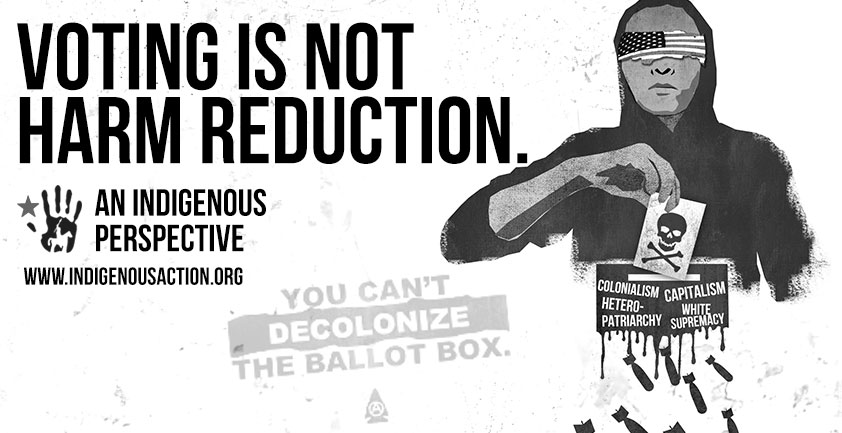- cross-posted to:
- [email protected]
- cross-posted to:
- [email protected]
BEFORE YOU DOWNVOTE LIKE SHEEPLE, READ THE ARTICLE FIRST AND THEN COMMENT WHY YOU DISAGREE, THEN, AND ONLY THEN, OUGHT YOU DOWNVOTE
We don’t dismiss the reality that, on the scale of U.S. settler colonial violence, even the slightest degree of harm can mean life or death for those most vulnerable. What we assert here is that the entire notion of “voting as harm reduction” obscures and perpetuates settler-colonial violence, there is nothing “less harmful” about it, and there are more effective ways to intervene in its violences.



If you abstain from voting you indicate that you accept the status quo. If you don’t like the 2 party system, vote for a 3rd party, write in your own name, or leave the ballot blank–if enough people take those actions it indicates to those in power that there is displeasure in what is going on.
If you just stay home it indicates that you don’t care and are not a threat to their reelection campaigns.
Yes, voting is not the most effective form of participation, but you are not limited to only a single form of action. You can both vote and protest, or vote and participate in mutual aid networks.
There are a lot of people in my mutual aid group that don’t vote because they feel it doesn’t matter or isn’t worth it. But in our extended web there’s about 200 people. That’s enough to sway some local seats. If you can cook and serve food or distro supplies for several hours each week, you can commit a couple of minutes to fill out a ballot (especially when there’s a ballot drop box literally across the street from our distro point).
Also there is no faster way to get me to downvote something than to beg that I not downvote. I’ll treat your post on it’s merits, and begging for a specific kind of engagement is a no no.